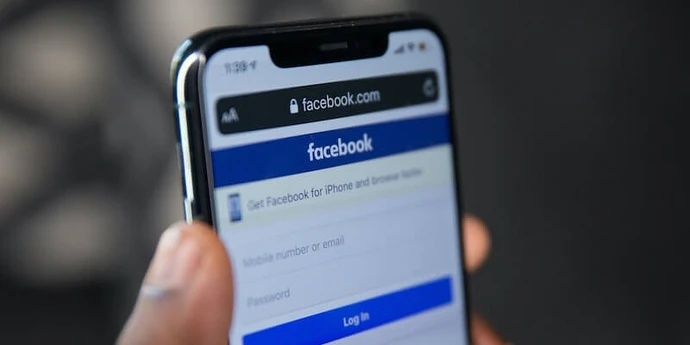Product Marketing Manager (PMM) interviews at Google are really challenging. The questions are difficult, specific to Google, and cover a wide range of topics.
The good news is that the right preparation can make a big difference and can help you land the job at Google (or Google Cloud). We have put together the ultimate guide to Google's PMM interviews below to help you maximize your chances of success.
Here's an overview of what we’ll cover:
Click here to practice mock interviews 1-on-1 with PMM ex-interviewers
1. Interview process and timeline
1.1 What interviews to expect
What's the Google PMM interview process and timeline? We've analyzed first-hand interview data from Glassdoor, and have summarized our findings here. The process typically takes over eight weeks and follows the steps below. Note that the process at Google Cloud Platform follows similar steps.
- Resume screen
- Recruiter phone interview
- Written assignment (in some cases)
- Hiring manager interview
- Onsite interviews (typically four interviews)
Let's look at each of these steps in more detail below:
1.1.1 Resume screen
First, recruiters will look at your resume and assess if your experience matches the open position. This is the most competitive step in the process, as millions of candidates do not make it past this stage. Check out our free Google resume guide with examples for help on writing yours.
If you’re looking for expert feedback on your resume, you can get input from our team of ex-FAANG recruiters, who will cover what achievements to focus on (or ignore), how to fine-tune your bullet points, and more.
If possible, it can also be helpful to get an employee or contact at Google to refer you to the recruiting team internally.
1.1.2 Recruiter phone screen
Your interview process with Google will usually start with talking to a recruiter on the phone. This is a pretty standard "screen" and they'll be assessing whether you have a good shot at ultimately getting a job offer. So do your homework and make sure you're ready to make a strong impression from the beginning.
Be prepared to explain your resume, your background, and why you’d be a good fit at Google. You should be prepared for typical behavioral and resume questions like, "Tell me about yourself" and "Why Google?"
1.1.3 Written assignment (in some cases)
Some applicants will also be asked to complete a written assignment. When included, this step tends to come after you've passed the initial phone screen, and before you move on to the later interviews.
You'll usually have a few days to complete the assignment. The format also varies. If you're applying as a PMM, you'll probably be given a prompt that you'll respond to and return via email.
If you're applying as an APMM (Associate Product Marketing Manager), then you might get a small project like writing a blog article or a social media post.
1.1.4 Hiring manager interview
Your next interview is usually with the hiring manager and is held over Google Hangouts. You should be prepared to get more in-depth questions in this interview, which could be about product marketing strategy, your work experiences, or both. See the example questions in section 2 below to learn more about the types of questions to expect.
The role of this interview is to make sure it's worth bringing you onsite. As a result, you'll need to show your interviewer that you aren't too weak to meet the hiring bar in any area.
1.1.5 PMM onsite interviews
Next up, you'll face the real test, which is the onsite interviews. Your onsite interviews will typically include four different interviews, which will last for about 45 minutes each.
During the onsite interviews, you'll get a variety of questions, but you can expect them to fall into four main categories:
- Behavioral questions, where you'll be asked about your past experiences, your leadership skills, and your ability to work with cross-functional teams. Your interviewers will also use these questions to evaluate your communication skills and your culture fit.
- Marketing strategy questions, where you'll be evaluated on your strategic thinking and how you would handle specific marketing scenarios (e.g. how to target a specific product to the right customers).
- Analytical questions, where you'll be asked questions related to evaluating KPIs, project / campaign performance, etc. You should also be prepared to estimate the size of a given market. More on this in section 2 below.
- Role-related questions, where you'll be asked about topics specifically related to the role or functional area to which you've applied. For example, if you've applied to a PMM role within Google Cloud, you might get questions about the biggest opportunities in the cloud computing industry.
This covers Google's PMM interview process at a high level. But, in addition to the interviews and question types to expect, it's also helpful to know what your Google interviewers will be looking for. We'll cover that in the next section.
[Interviewing during COVID-19] As of the writing of this article, we believe that Google's PMM interview process, which we've summarized above, is largely the same during the COVID-19 pandemic. However, Google will likely move interview steps that would normally be held in-person, to virtual substitutes (i.e. Google Hangouts). If you want to learn more about how your interviews will be handled, your recruiter from Google should be able to answer your questions during your initial phone call.
1.2 What exactly is Google looking for?
During your interviews, your Google interviewers will be looking for four main attributes. If you have a clear understanding of these attributes it could help you prepare better answers, that are more aligned with Google's hiring criteria. Let's dig into each of the four attributes here:
- General cognitive ability. This is often referred to as "GCA" by Googlers. The company wants to hire smart PMMs who can learn and adapt to new situations. Here your interviewer will try to understand how you solve hard problems and how you learn. For more information, take a look at our guide to the Google GCA interview.
- Role-related knowledge and experience. This is often referred to as "RRK" or "RRKE" internally. The company wants to make sure that you have the right experience, domain expertise, and competencies for the position you're applying for. For more information, take a look at our guide to the Google RRK interview.
- Leadership. Google looks for a particular type of leadership called “emergent leadership.” You'll typically be working in cross-functional teams at Google, and different team members are expected to step up and lead at different times in the lifecycle of a project when their skills are needed.
- Googleyness (i.e. culture fit). Finally, the company wants to make sure Google is the right environment for you. Your interviewer will check whether you naturally exhibit the company's values, including: being comfortable with ambiguity, having a bias to action, and a collaborative nature.
That covers the high-level interview process you can expect at Google for a PMM position, as well as the four traits that Google will want to see in the candidates that they ultimately hire.
Next, we'll dig deeper into the types of questions you'll encounter during your interviews, and we'll provide several example interview questions you can practice with.
2. Example questions
As we mentioned above, the interview questions you'll face during your Google PMM interviews can be broken down into four main categories:
- Behavioral questions
- Marketing strategy questions
- Analytical questions
- Role-related questions
Below we’ll cover each of these in more detail.
2.1 Behavioral questions
In order to complete product marketing projects, Google PMMs usually need to work cross-functionally with a variety of people, including engineers, product managers, data scientists, etc.
This is not an easy task, especially considering the fact that PMMs don't have direct authority over most of the people they work with. As a result, it's extremely important for PMMs to have strong communication skills, and to be able to lead by influencing others and resolving conflicts when they arise.
In addition, your interviewers will want to learn more about your past product marketing experience, your career goals, and your culture fit with Google.
All of these skills and attributes are evaluated by Google using a variety of behavioral interview questions. Below we've listed several example questions, all of which are from Google PMM interview reports on Glassdoor (Note: we've adjusted the phrasing in some places to improve the grammar and clarity).
Google PMM interview questions - Behavioral
- How do you manage stakeholders effectively? Especially stakeholders who have competing or different priorities?
- Tell me about a time you had to work through conflict.
- How would you deal with a teammate who took credit for all the work done by the entire team?
- Tell me about a time you had to work through ambiguity
- What’s your favorite brand? Why?
- Where do you want to be in 5 years?
2.2 Marketing strategy questions
The core function of a Google PMM is to bring products to the market and to market those products effectively to the right customers. To do this well, you'll need to understand marketing strategy, including how to identify an opportunity, define the target market, and implement a launch campaign.
To evaluate your experience and skills in these areas, your interviewers will ask you a variety of questions about your past marketing projects or how you would handle real (or hypothetical) marketing problems.
Below we've listed several example questions, all of which are from Google PMM interview reports on Glassdoor (Note: we've adjusted the phrasing and added examples of Google brands in some places to improve the grammar and clarity).
Google PMM interview questions - Marketing strategy
- Who would you target product X to?
- Name a new technology that recently grabbed your attention in the news. How would you expand that product or service in your market?
- What's your favorite brand? Why?
- What are the key risks and opportunities for Google Play?
2.3 Analytical questions
Google PMMs also need to have strong analytical skills. During your interviews, you should be prepared to demonstrate your ability to evaluate KPIs and the performance of past projects or campaigns. You should also be prepared to answer estimation questions (e.g. how many Google Docs are created every year?).
Below we've listed several example questions, all of which are from Google PMM interview reports on Glassdoor (Note: we've adjusted the phrasing in some places to improve the grammar and clarity).
Google PMM interview questions - Analytical
- How have you improved the KPIs of the markets that you have previously managed?
- How would you change X campaign to make it more effective?
- How many videos are there on YouTube?
- How many beds will be sold in the UK next year?
2.4 Role-related questions
Finally, PMMs are typically NOT generalists and will be hired for a specific role or functional area within Google. As a result, it's important to demonstrate that you have the "domain knowledge" you'll need to be successful in the role for which you've applied.
For example, if you apply for a PMM role with Google Cloud, then you'll probably get questions related to the cloud-computing industry. Drilling down further, let's say you apply for a PMM role which focuses on Google Cloud's database products. You should be prepared to answer questions about marketing new or existing Google database solutions.
This might require some extra homework on your end, through online research or reaching out to people in the industry. It's also good to be aware of recent news in the relevant industry and to be prepared to discuss your perspective on notable changes or events.
Below we've listed several example questions, all of which are from Google PMM interview reports on Glassdoor (Note: we've adjusted the phrasing and added examples of Google brands in some places to improve the grammar and clarity). Since these are role-related questions, simply replace the scenario with one that's relevant to your target role, and that should give you a helpful practice question.
Google PMM interview questions - Role-related questions
- How familiar are you with the best practices for Google Ads?
- What are the role and challenges of AI in the future?
- What's a recent project from Google Play, and what could we have done better?
- What decision-makers would you need to work with for medical cloud services?
3. How to prepare
Now that you know what questions to expect, let's focus on how to prepare. Here are the four preparation steps we recommend, to help you get an offer as a Google (or GCP) product marketing manager.
3.1 Learn about Google's culture
Most candidates fail to do this, but before investing a bunch of time preparing for interviews at Google, you should take some time to make sure it's actually the right company for you.
Google is prestigious, so it's tempting to ignore this step completely. But, the prestige in itself won't make you happy day-to-day. It's the type of work and the people you work with that will.
If you know any PMMs, engineers, or PMs who work at Google (or used to) it's a good idea to talk to them to understand what the culture is like. In addition, we would recommend reading the following resources:
- Google's mission statement (by Google)
- Google's values (by Google)
- Google strategy teardown (by CBS Insights)
3.2 Practice by yourself
As mentioned above, you'll face four main types of PMM interview questions at Google: behavioral, marketing strategy, analytical, and role-related. Here are some things you can do to prepare for each one by yourself.
For behavioral interview questions, we recommend that you first read our guide on behavioral interviews at tech companies. It's also helpful to prepare a couple of "stories" from your past work experiences. These stories (and the way you deliver them) should highlight your ability to communicate clearly, influence stakeholders, resolve conflict, etc. When you have a story in mind, you can test it by asking yourself questions like the ones in section 2.1 above.
For marketing strategy interview questions, it's also helpful to prepare a couple of stories from your past work experiences (or industry examples). The stories you prepare for these questions will be a bit different and should quantify the positive impact you've had by steering the direction of a campaign, driving a go-to-market strategy, etc. It's also a good idea to practice some scenario-based questions like the ones provided in section 2.2 above.
For analytical questions, you'll need to demonstrate that you're a strong problem solver and that you understand how to use metrics to make decisions. This is another area where it helps to prepare "stories" from your past experience, however, you should also be ready to analyze new scenarios (e.g. How would you improve the performance of product X?). In addition, you should get some practice doing quick "napkin math" to help you solve estimation questions.
For role-related questions, you’ll need to do some homework on the role and functional area for which you’ve applied. For instance, if you’re applying for a PMM role focusing on Google's search ads, then you should spend some time learning (or reminding yourself) about that business. Do some online research, and try to talk to people familiar with the business to learn more.
It's a great idea to practice each of these types of interview questions out loud. This may sound strange, but it will significantly improve the way you communicate your answers during an interview.
However, practicing on your own has its limitations. You can’t simulate thinking on your feet or the pressure of performing in front of a stranger. Plus, there are no unexpected follow-up questions and no feedback.
That’s why many candidates try to practice with friends or peers.
3.3 Practice with peers
If you have friends or peers who can do mock interviews with you, that's an option worth trying. It’s free, but be warned, you may come up against the following problems:
- It’s hard to know if the feedback you get is accurate
- They’re unlikely to have insider knowledge of interviews at your target company
- On peer platforms, people often waste your time by not showing up
For those reasons, many candidates skip peer mock interviews and go straight to mock interviews with an expert.
3.4 Practice with experienced PMM interviewers
In our experience, practicing real interviews with experts who can give you company-specific feedback makes a huge difference.
Find a Google product marketing manager interview coach so you can:
- Test yourself under real interview conditions
- Get accurate feedback from a real expert
- Build your confidence
- Get company-specific insights
- Learn how to tell the right stories, better.
- Save time by focusing your preparation
Landing a job at a big tech company often results in a $50,000 per year or more increase in total compensation. In our experience, three or four coaching sessions worth ~$500 make a significant difference in your ability to land the job. That’s an ROI of 100x!















